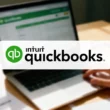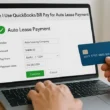Does Cash App affect credit score? No, using Cash App does not directly affect your credit score or credit report. However, Cash App can affect your credit score indirectly. If you use the Cash App to make purchases and you don’t pay back the money you owe, it could have a negative impact on your credit score.
As technology advances, so do the ways we can pay for goods and services. Cash App is one of the latest payment apps on the market and it includes a Cash App card that allows users to make transactions. But does using a Cash App card affect your credit score?
Let’s find out in detail…
What is a Cash App Card?
Cash App Card is a Visa debit card that can be used to make purchases or withdraw cash from ATMs. It is linked to a user’s Cash App account, and the funds in the account can be used to make transactions with the card.
The Cash App Card can be used anywhere Visa is accepted and can be ordered directly through the Cash App. Users can also use the card to withdraw cash from ATMs, check their account balance, and view transaction history.
In addition, users can also activate and lock the card through the app, making it easy to control the security of the card.
Take a note that the Cash App card is different from a credit card in that it does not require a credit check to use. This makes it a great option for those who may not have the best credit score or who are not ready to apply for a credit card.
How Does a Cash App Card Work?
A Cash App Card works like any other debit card. It is linked to your Cash App account, and the funds in your account can be used to make purchases or withdraw cash from ATMs.
To use the card, you will first need to order it through the Cash App, and then activate it. Once the card is activated, you can use it to make purchases at any merchant that accepts Visa debit cards. You can also use it to withdraw cash from ATMs, check your account balance, or view your transaction history.
To make a purchase, you simply need to swipe or insert the card at the point of sale and enter your PIN. The funds will be deducted from your Cash App account balance.
If you want to withdraw cash from an ATM, you will need to enter your PIN and select the “cash withdrawal” option. The funds will be deducted from your Cash App account balance and dispensed as cash.
Keep in mind that you will be charged with ATM fee for withdraw cash.
You can also manage your card through the Cash App. You can view your transaction history, check your account balance, or freeze your card if you suspect it’s been lost or stolen.
Does Using a Cash App Card Impact Your Credit Score?
Using a Cash App card does not directly impact your credit score. Since the Cash App card is a prepaid debit card, it does not report to the credit bureaus. This means that using the Cash App card will not have an effect on your credit score.
However, using a Cash App card does have an indirect impact on your credit score. By using a Cash App card, you are showing lenders that you are responsible with your money. This can have a positive effect on your credit score over time.
In brief, signing up for a Cash App account or using Cash App card will not affect your credit score, but if you use the Buy Now Pay Later feature, which allows you to make purchases and pay them off over time, your credit score could be impacted upon application for the credit card.
Additionally, if you miss or make late payments, it could negatively impact your credit score.
Can a Cash App Card Help You Build Credit?
A Cash App Card is a debit card and not a credit card, so it cannot help you build credit on its own.
Credit scores are based on credit history, which is a record of how you’ve borrowed and repaid money over time. The Cash App debit card, is not considered a loan and therefore doesn’t impact your credit score.
However, if you use Cash App’s “Buy Now Pay Later” feature, which allows you to make purchases and pay them off over time, this could potentially have an impact on your credit score. Late or missed payments on this feature can negatively impact your credit score.
Furthermore, when you apply for this feature, it will be likely that the lender will check your credit score and that will be reflected on your credit report.
To build credit, it’s important to use credit responsibly by making payments on time and keeping credit card balances low. There are a variety of credit-building options, such as secured credit cards and credit-builder loans, which can help you establish or rebuild your credit history.
Does Borrowing Money From Cash App Help Your Credit?
Borrowing money from Cash App does not directly help your credit score, since Cash App is a peer-to-peer (P2P) payment platform and not a traditional lender.
Cash App allows users to transfer money to one another, and it also offers a feature called “Cash Advance” that allows users to borrow a small amount of money at a high-interest rate. (For Example: a short term loan up to $200 that must be repaid in four weeks, with a 5% flat fee.)
Take a note, this feature is not available in all states and territories.
When you borrow money through the Cash App, the lender doesn’t report the loan to the credit bureaus, so it will not show up on your credit report. As a result, it will not help you build credit, and it will not be reflected on your credit score.
However, still it can lead to future credit score problems and hence it’s important to always make sure you can afford to repay the loan before you borrow from Cash App.
Tips to Build Credit Score Using Cash App Card
As mentioned earlier, a Cash App Card is a debit card and not a credit card, so it cannot help you build credit on its own. The Cash App card itself doesn’t report to credit bureau, so it won’t have any direct impact on your credit score.
However, there are some steps you can take to use the Cash App Card to help build your credit score over time:
#Tip 1 – The first step is to link your Cash App Card to your existing credit report. This will allow Cash App to use its services to help you build your credit score. Once the card is linked, you can use it to make purchases and payments, which will then be reported to the major credit bureaus. It’s important to note that you must use your Cash App Card responsibly and make payments on time in order to build your credit score.
#Tip 2 – Use Cash App’s budgeting and savings features to help monitor your spending and save money. By using these features, you can manage your finances and build a good credit score.
#Tip 3 – Use Cash App’s Borrow service, where you can borrow up to $200 and pay it back over four weeks. This can help to further build your credit score if you make all your payments on time.
#Tip 4 – Use your Cash App Card responsibly. Make sure to use your Cash App Card for small purchases and pay them off in full and on time each month. This will demonstrate that you can handle credit responsibly.
#Tip 5 – Use the “Cash Advance” feature responsibly. If this feature is available in your state and you decide to use it, make sure to pay off the loan on time. Late payments can negatively affect your credit score.
#Tip 6 – Get a secured credit card. Consider applying for a secured credit card, which is a type of credit card that requires a security deposit. Use the secured credit card and the Cash App Card responsibly and make payments on time.
#Tip 7 – Keep an eye on your credit score, so you can track your progress over time. You can obtain a free credit report from the credit bureau every year.
It’s important to keep in mind that building credit takes time and patience, so don’t be discouraged if you don’t see an immediate change in your credit score. The key is to be consistent and use credit responsibly over time.
Conclusion
In brief, using the Cash App to transfer money to friends and family or to make purchases does not directly impact your credit score and can’t help you build credit on its own.








